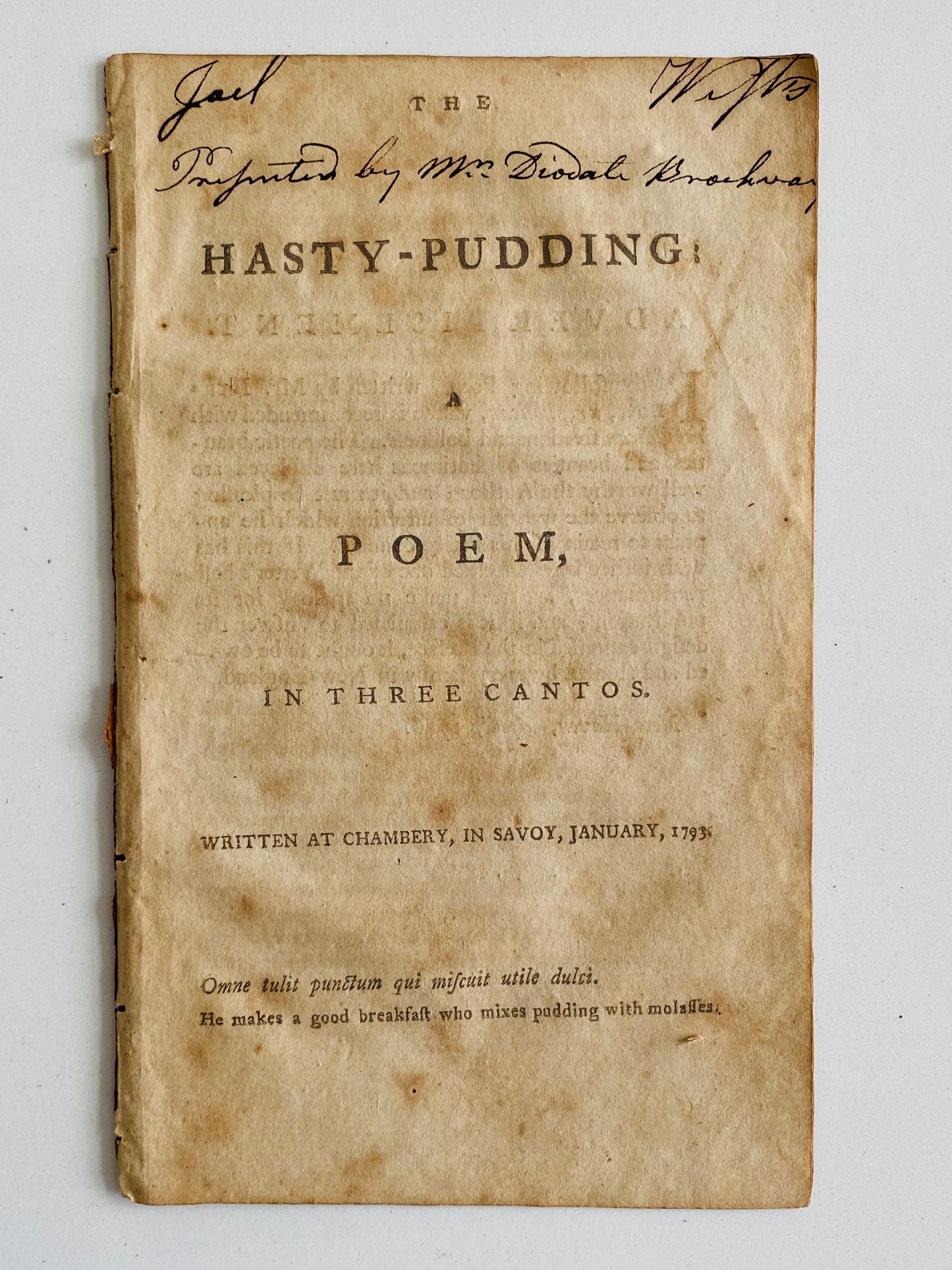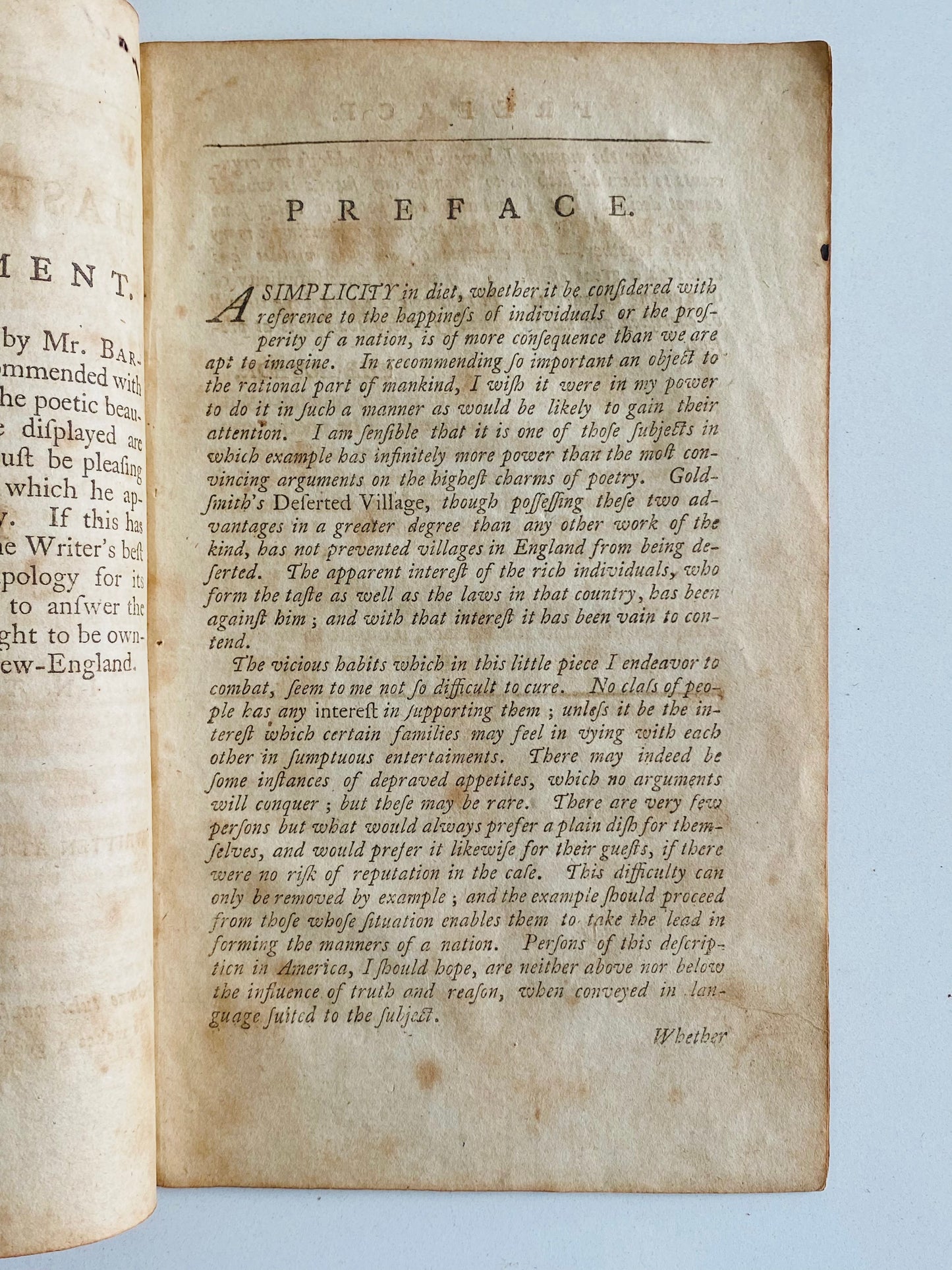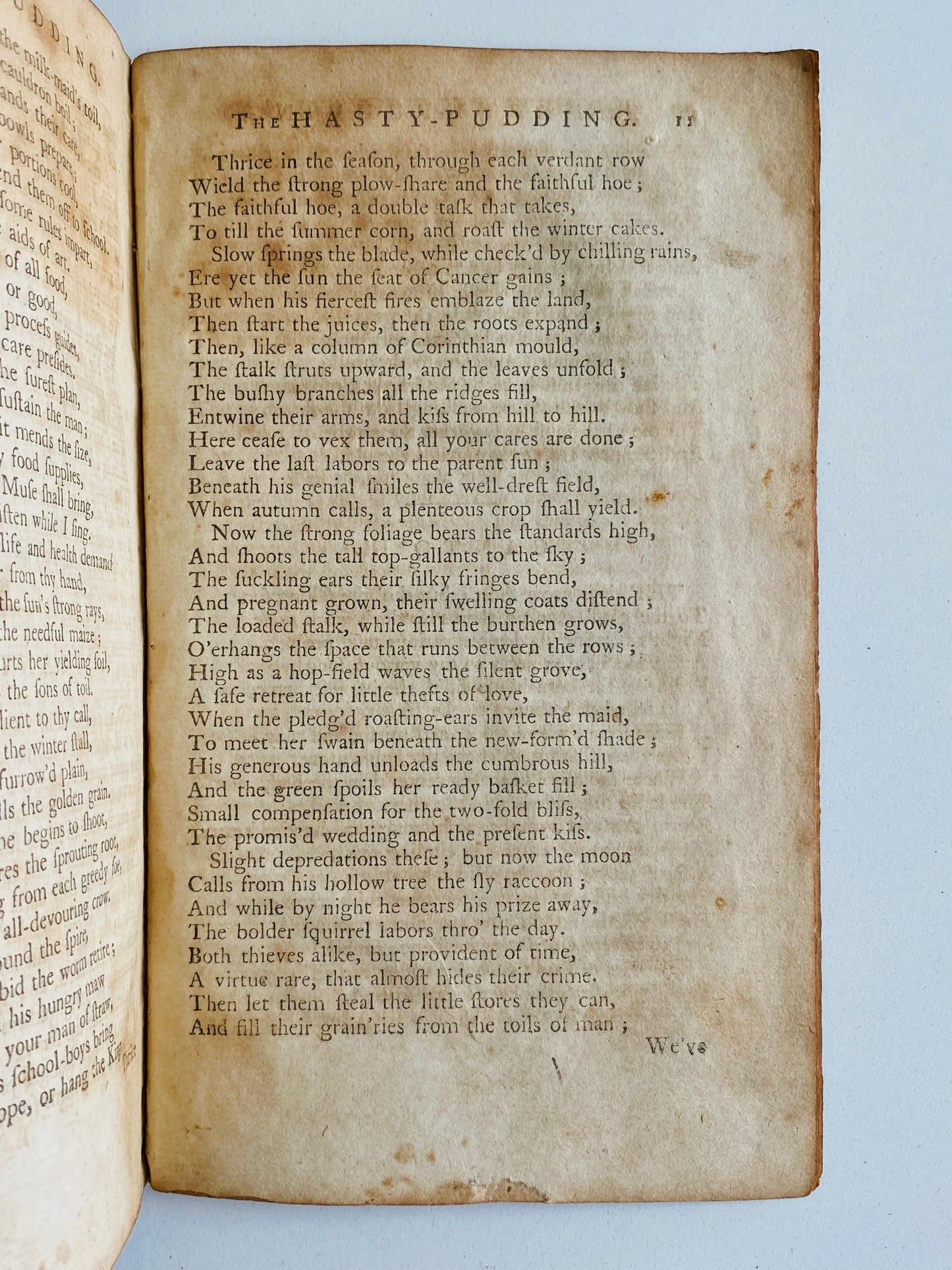Specs Fine Books
1796 JOEL BARLOW. The Hasty-Pudding. Important Early Epic American Poem. Very Scarce.
1796 JOEL BARLOW. The Hasty-Pudding. Important Early Epic American Poem. Very Scarce.
Couldn't load pickup availability
A very scarce imprint of an influential, apparently inexplicably rare piece of Americana . . . it ought to be owned and studied by every family in New-England . . . said its publisher. And it was. Almost immediately it was anthologized in periodicals and literary readers; it remains so to this day. Yet, as highly influential as it was and is, extant copies are exceptionally rare with no copies on the market and none traced at public sale I can locate.
Today, it appears in many anthologies of important early American verse. Its author, Joel Barlow [1754-1812], exemplified the simple life in new America under the image of "hasty-pudding," i.e. cornmeal mush, his favorite American dish. The image is intentionally homespun, casting America as a nation of common-sense, hard-working folk who enjoy simple pleasures, value their communities, who are allergic to ostentation and greed. We have here an early pre-sentiment to the "American as apple pie." The metaphor is more than food; it speaks of family, home, simple pleasures.
Literary historians note that everything about the poem; its title, subject, word choice . . . all were calculated to imagine America as something simpler, more sublime and earthbound than Europe, than Great Britain. America had no King. Therefore it needed no thrones, no palaces; it needed no State Church with gold and marble; it needed no flagrantly wasteful balls and dinners.
J. A. Leo Lemay, the Journal of Early American Literature, calls the work, a "mock-heroic poem" commenting on how American simple pleasures contrast with the extravagancies of Europe; how people have the power contrasts with monarchies and systems ruled by the elite, etc. he also styles it one of the first works of humorous satire published in the new America.
The work has, in tone, content, and sentiment have been compared to the "Homespun" writings of Benjamin Franklin.
A graduate of Yale, Barlow was chaplain for three years in the Revolutionary War. He established the American Mercury Newspaper in Hartford, and in 1786 was admitted to the Bar. Along with John Trumbull and Timothy Dwight, he was a member of the group of young writers, known as the Connecticut, or Hartford, Wits, whose patriotism led them to attempt to create a national literature, i.e. a truly American approach to writing. Certainly The Hasty-Pudding must be the example par excellence of this idea.
A truly delightful work in which he styles Cornmeal Mush is "muse!"
Joel Barlow. The Hasty-Pudding: A Poem, in Three Cantos. Written at Chambery, in Savoy, January, 1793. New Haven. 1796. 15pp.
I sing the sweets I know, the charms I feel,
My morning incense, and my evening meal,
The sweets of Hasty-Pudding. Come, dear bowl,
Glide o'er my palate, and inspire my soul.
The milk beside thee, smoking from the kine,
Its substance mingled, married with thine,
Shall cool and temper thy superior heat,
And save the pains of blowing while I eat.
Oh! could the smooth, the emblematic song
Flow like thy genial juices o'er my tongue,
Could those mild morsels in my numbers chime,
And as they roll in substance, roll in rhyme,
No more thy aukward unpoetic name
Should shun the Muse, or prejudice the same;
But rising grateful to th' accustom'd ear,
All Bards should catch it, and all realms revere!
. . .
To mix the food by vicious rules of art,
To kill the stomach and to sink the heat,
To make mankind, to social virtue sour,
Cram o'er each dish, and be what they devour;
For this the kitchen Muse first fram'd her book,
Commanding sweats to stream from every cook;
Children no more their antic gambols tri'd,
And friends to physic wonder'd why they died.
Not so the Yankey - his abundant feast,
With simples furnish'd, and with plainness drest,
A numerous offspring gathers round the board,
And cheers alike the servant and the lord;
Whose well-bought hunger prompts the joyous taste;
And health attends them from the short repast.
. . .
Fear not to flaver; 'tis no deadly sin.
Like the free Frenchman, from your joyous chin
Suspend the ready napkin; or, like me,
Poise with on hand your bowl upon your knee;
Just in the zeneth your wise head project,
Your full spoon, rising in a line direct,
Bold as a bucket, heeds no drops that fall,
The wide mouth'd bowl will surely catch them all.
Title with no publishing information, but the publisher's advertisement indicating New-Haven, 1796. It appears to not have been included there. Inscription to Rev Joel West from Mrs. Rev. Diodate Brockway. Foxed, but generally good. Removed from a sammelband with the attendant remainders on the spine and abrasions at the inner margin of the first and last sheet.
Share






